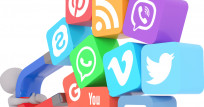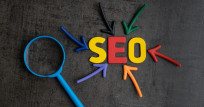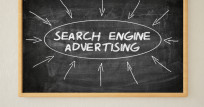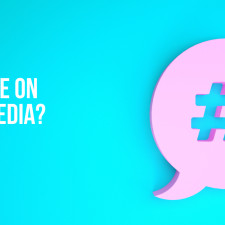Facebook should not be a FAKEbook
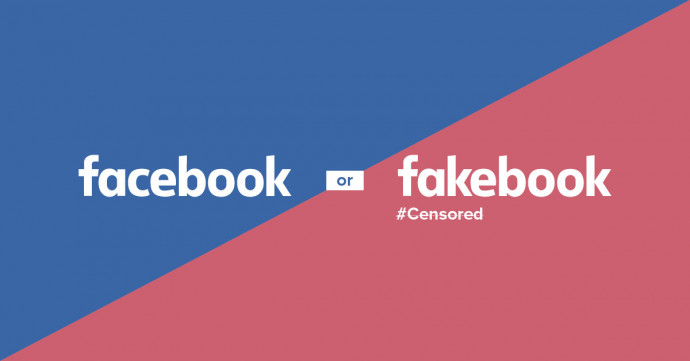
Globally, there are signs that posts on Facebook offer more truth to some people than news from reputable journalists and newspapers. Journalists can be influenced, bribed, and, according to these people, could have a political interest.
On the other hand, Facebook provides a platform - even for presidents of leading countries - to turn their lies into truths.
Facebook CEO Mark Zuckerberg says he doesn't want to impose censorship on users, and if it concerns President Trump, for example, that's right. He can post whatever he wants. Even an accusation of murder without evidence does not go too far for Facebook.
Unfortunately, it is also the case that many posts, advertisements, and accounts of 'ordinary' users are removed without hesitation or consultation. How does this work? Has Facebook become a kind of FAKEbook, and do they deliberately disperse certain propaganda, or is the truth more nuanced?
In order to be able to form a somewhat cautious opinion about this, it might be important to look at the history of founder Mark Zuckerberg and the Facebook platform.
The origins of Facebook
The name says it all; Facebook literally means face book. Founder Mark built a site on which all female fellow students could be ranked by male fellow students. Users could indicate whether the fellow students were pretty or ugly, and that was a favorite hobby for many. It was a kind of mass election online in the most primary form.
Unfortunately for Mark, he had stolen the portrait photos from the university's central server, and not all the ladies were equally charmed by his nefarious little plan. So the site soon had to go offline again.
But an idea was born. After all, what if people would voluntarily register, and the emphasis would be less on the appreciation of pretty or not pretty? Facebook was born and soon became extremely popular.
Messages on Facebook were intended as a traffic generator.
Facebook became increasingly popular among young people because it was a way for them to show who they were and what their hobbies and interests are. This made it easy to find like-minded "friends" and form an online group of friends. But more had to be done according to Mark, because he wanted to and had to make money.
The plan was to share photos, videos, and texts on your own timeline that other online friends would see. This gave users a reason to go to Facebook more often and increased traffic to the platform.
Mark understood then that traffic equals revenue because you can bombard users with ads. The more an ad is clicked on, the more you earn, so the money suddenly flowed in.
The first dilemmas of Facebook
When Facebook was still small, and people could only profile themselves by creating a profile, there wasn't much going on. The first dilemmas arose when one could also share everything with others.
How do you deal with hate messages, and what exactly is a hate message? Pornography, for example, in whatever form, is easy to recognize and thus block. But when is something sarcastic, and when is it hateful?
This became more and more important because, in some countries, your platform can be banned if you spread hatred. And that was just the beginning of their dilemmas.
Due to the enormous expansion of Facebook, it was not possible to manually check every message from a user. So an algorithm had to be written for that. Software that automatically recognizes what is hateful and what is not.
The problem is that if you want to be able to recognize this in any language, your algorithm has to be smarter than any human on earth to understand exactly what someone means in their language. An impossible task, because unfortunately, computers are not yet that intelligent.
Censorship or no censorship on Facebook
If you place advertisements on your platform, this content is yours, and as a platform, you are responsible whether or not it is misleading. If they are misleading, you are liable to prosecution, and this can lead to huge fines.
It is, therefore, not surprising that all advertisements placed on the platform are manually checked for content. If in doubt, the ad will not be placed, because Facebook cannot risk fines.
It is quite different when someone expresses an opinion. Because how can Facebook know if that opinion is misleading? If you start censoring it, it's like sitting down during a conversation between two strangers and dictating what one and the other may or may not say. That is completely contrary to freedom of speech.
Facebook has long held the view that as long as someone is not hateful, racist, or insulting, it is not up to them to interfere with the content. According to Mark, censorship of communication between users should be kept to a minimum.
The introductions of the like and anger icons on Facebook.
The fact that Facebook almost did not interfere with the content of the messages on the timeline of users received a lot of criticism from a certain group of people. They wanted the benefits of the free platform but did not want to experience the burden of it.
Users wanted to see nice positive messages with opinions they could identify with. If not, they didn't have a pleasant experience and decided to unsubscribe. Of course, that's not what Mark wanted, but he also didn't want to introduce censorship.
That's why the like and anger icons were introduced. Everyone immediately understood what the like stood for. That was because it was introduced much earlier and because the vast majority intuitively understood that this was an appreciation for the public post.
The anger icon brought more confusion. When using this icon, were you angry about the subject or angry about the content of the subject?
The intention after using the anger icon was to show the message and similar messages less or not at all. But that experiment failed.
Why do you follow someone you don't want to hear or see on Facebook?
Facebook once again faced a serious dilemma. People consciously choose to follow someone or to become friends with someone online. But they are dissatisfied if they hear, see or read something they don't like about that person.
It's as if everyday users ring the doorbell of a friend they know in advance will say something annoying, but still get angry—day after day.
The solution was an additional button that allows users to indicate that a post is inappropriate, untrue, annoying, or offensive. If a lot of users find this, Facebook can look at it and decide whether the post goes against one of the house rules. In addition, Facebook can use this button to ensure that you no longer see the post.
It would be smarter of these people to unfriend the person who posted it, but the average user does not. They think that Facebook should make sure that they only see and hear what they like.
What is the role of a platform?
Facebook is a platform, and the role of each platform is to connect users or groups of users without interference. It's like putting a ship in the water and telling people that everyone can use it for free.
The only rule of the game is that you, as a platform, maintain a safe environment and comply with all laws and regulations. What the people on board do and say is not up to you.
In that sense, you could say that Facebook fulfills its role as a platform perfectly. Let the people find out who they want to communicate with and in what way. That is not the job of the owner of the boat. He just wants to put some big-paid banners on the boat in the hope that the passengers will take a look at it.
But about the latter and the role of a platform, there is a lot to do lately. That's because of the new term Fake news.
Fake news and Facebook
With the rise of and awareness about Fake news, Facebook is facing the biggest dilemma ever. Something that hadn't been taken into account beforehand and even the smartest people on earth doesn't know what to do with. What is real and not real news, and what role should or may a platform play in it?
If someone claims that JFK was murdered by the CIA and the other says it was the Russians. Who is right in that case, or does this fall under the right of freedom of speech? Recently there was a lot of fuss about the American president suggesting that postal voting would lead to more fraud. Is this an opinion, or the proclamation of untruths, and who decides that?
By censoring posts on a platform, you are playing God, according to Mark Zuckerberg. But if you don't do it, the users won't see the wood for the trees. Contrary to what often happens with a newspaper, a subject is not highlighted from one side.
Because this is user-generated content, a subject is illuminated from all sides. So also from the perspective of the aluminum hats wearing conspiracy supporters who believe that the Martians cause voting fraud.
Facebook has become a FAKEbook because it is a stage for any fool who thinks he has the right to the truth. That in itself wouldn't be so bad if the user himself didn't think Facebook was a news site.
Facebook never started to become a news site, it didn't want to go there, and it should never take on that role. Facebook has become FAKEbook because users abuse the platform. Both the author and the reader are guilty of this.
Can anyone just post anything on FAKEbook?
As long as you don't insult, threaten, hate, or discriminate against anyone, everyone should be able to post anything on FAKEbook. At least if you believe in the role of a platform that only facilitates interaction. As soon as you censor this interaction in any form, you are no longer a neutral platform.
This also means that you can't say that one article is fake news, and the other is not. If you really want to maintain your neutral role as a platform, you should ban what is not allowed by law and then make it clear to all posts that it is only an opinion of the sender and that the content has not been verified.
Actually, with every post, you could say that you should go to news and background sites for news and background information. That is their role and not that of FAKEbook.
Why can you trust news on news sites more often than FAKEbook?
You can trust news on news sites more often because reputable news sites seldom employ aluminum hat-wearing journalists. They also seldom have an interest in spreading unsubstantiated opinions, ideas, and conspiracies.
Of course, they will highlight the news from one side, but fortunately, there are also several other reputable news sites. If you want to hear the other side of the story, read the story of another journalist. It's as simple as that.
Can all news sites be trusted?
Relative to the number of news sites, there are few news sites to trust. Some are supervised by the government, others only employ journalists who write what the highest bidder asks for, and the vast majority are not real news sites at all.
Thanks to the Internet and with the stage of FAKEbook, every cave-dweller suddenly finds himself an editor. As soon as he discovers that you can make a lot of money by posting the most nonsensical articles with links to even more nonsensical other sites as proof for their statements, all hell opens up.
He will start telling more and more nonsense, and gullible people will share more and more nonsense, and the supporters will grow. Suddenly he is able to hire other cave dwellers who also write nonsense, and before you know it, you have a "reliable" big alternative news site.
How do I know if I can trust a news site?
Good and, therefore, reliable news sites are known for doing very thorough background research. Editors are not allowed to post anything until one or more independent fact-checkers have been able to analyze the article word for word.
They do not do this by going to vague other sites or government sites. They do this by means of field research, interviews in which it must be possible to verify the reliability of the interviewee and by digging into archives.
If something cannot be proven conclusively, they will, unlike with FAKEbook, state that it is an opinion or that what they write is not indisputable. For all claims they do make, they will mention a very reliable source and substantiate why that source is reliable.
Is everything a reliable news site says true?
Not everything a reliable news site writes is always 100% true. They too can make mistakes. They, too, can fall victim to new information that comes to light. But because of the lack of alu hats editors, conspiracy fanatics, and editors who have a financial interest in publishing something, the chance is millions of times smaller that the information is not reliable.
And for anyone who wants to hear something other than substantiated facts, I advise you to keep using FAKEbook adrift and to worry about the role that FAKEbook should or shouldn't have in censorship. Because for them, believing in fables is still easier and more fun than staying informed about what's really happening in the world.
-
Geert PelsmaMarketing strategist€ 1,50 pm
-
Zita DusaContent | Research€ 0,75 pm
-
Izrrael SandreaDigital Marketing€ 2,00 pm
-
Van Koenig TatariEcommerce Specialist€ 0,33 pm
-
Gloson TehVideos and FB ads€ 0,10 pm
-
Jose W.Digital marketing€ 2,50 pm
